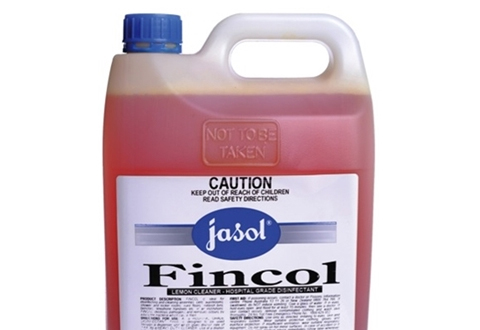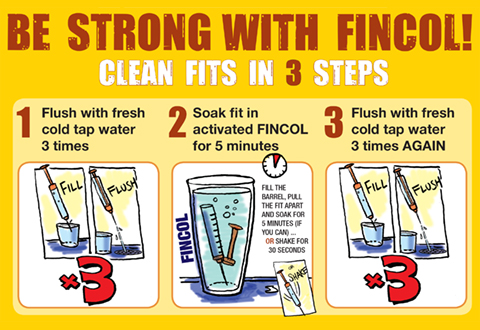Use of Fincol in NSW prisons: preventing hep C transmission

We know from the ample evidence before the NSW Special Commission of Inquiry into the Drug ‘Ice’ that, like it or not, drugs and injecting equipment find their way into, and are used in, prisons. This is an unavoidable reality.
Hepatitis NSW strongly supports the ongoing provision and use of Fincol as a disinfectant in correctional settings.
Regarding evidence provided to the current Inquiry – and the reporting of that evidence – the impression has been given that Fincol is of ‘dubious efficacy’ when used by people in prison as a disinfectant to clean syringes and other equipment used to inject drugs.
Using Fincol is better than using nothing at all
We know that when Fincol is used as per the manufacturers’ instructions, it is effective in killing hepatitis C and other blood borne viruses.
It is not the efficacy of Fincol that should be questioned, but rather the circumstances surrounding Fincol’s availability and usage, as it is these factors which lead to injecting equipment not being adequately disinfected.
Fincol is not readily available in all areas in NSW prisons. Furthermore, when it is used, people in jail often do not have the ability or time to clean scarce injecting equipment as per the instructions.

Despite these shortcomings, it is far better for people in prison to use Fincol to try to disinfect injecting equipment as thoroughly as possible, rather than not clean the syringes at all.
A preferable solution: Prison Needle Exchange
What would be far more effective is the provision of sterile injecting equipment, on a strict one-for-one exchange basis, to people in prison who inject drugs.
To reduce the risk of transmission of hep C and other blood borne viruses in prison, a controlled needle exchange system is essential. Needle exchanges exist in prisons overseas, including in Canada.
We note that drugs are illegal both in prison and in the broader community. Regardless, widespread needle and syringe programs (NSPs) are available in the broader community and serve as a highly effective means of preventing the transmission of hep C and other BBVs among people who inject drugs, however they are not available in any prison in Australia.
There is not, therefore, an equivalence of health care provision between people in prison and people in the broader community.
Prison officers are at greater risk from accidental needle stick injuries, and potential HCV infection, with the current system of uncontrolled needle use, where syringes carry a high value and are difficult to disinfect, than they would be under a tightly controlled needle exchange program.
In the meantime use Fincol to disinfect injection equipment
While this debate around Fincol and prison based needle exchanges continues, it essential that people in prison be provided with the means to disinfect injecting equipment as best they can. Fincol is currently the only available means.






